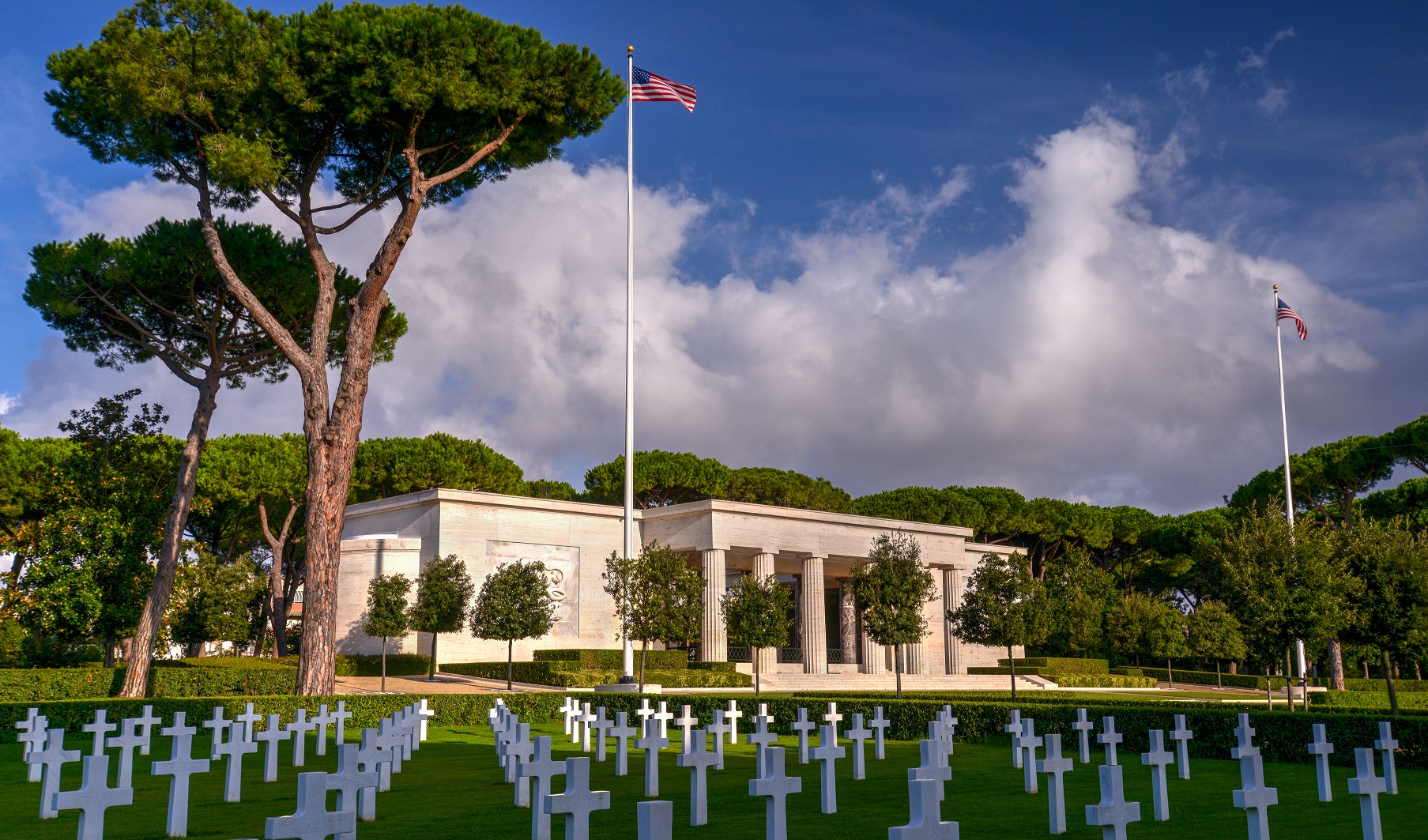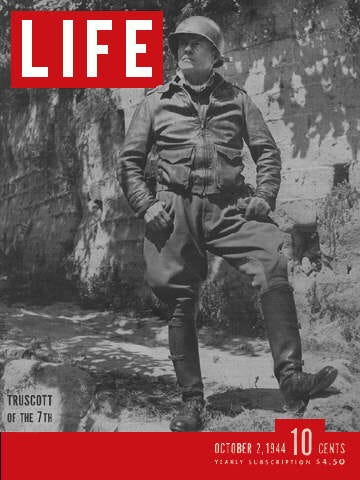
Memorial Day 1945. The location: the Sicily-Rome American Cemetery in Nettuno, Italy. At the time, approximately 20,000 American soldiers were buried in the cemetery, killed during the campaign in Sicily and the first part of the subsequent Italian campaign (Sept. 1943 - June 1944). Over the years, many American families had the bodies of their loved ones returned to the United States. Among the 7,858 still in the cemetery is Captain Henry Waskow, subject of the most famous column written by an American journalist in the war; Ernie Pyle (killed by the Japanese in April 1945).
The speaker was General Lucien Truscott, commander of the Fifth Army. When he rose to speak, Truscott turned away from the audience to face the dead who he addressed in his gravelly voice. There is no transcript of his remarks. The most complete account we have is from Bill Mauldin, the famous Army cartoonist, who was in the audience. Mauldin was a GI favorite because he understood the soldiers and took pokes at the top brass. This is what he later wrote:
“When Truscott spoke he turned away from the visitors and addressed himself to the corpses he had commanded here. It was the most moving gesture I ever saw. It came from a hard-boiled old man who was incapable of planned dramatics.
“The general’s remarks were brief and extemporaneous. He apologized to the dead men for their presence here. He said everybody tells leaders it is not their fault that men get killed in war, but that every leader knows in his heart this is not altogether true.
“He said he hoped anybody here through any mistake of his would forgive him, but he realized that was asking a hell of a lot under the circumstances. . . . he would not speak about the glorious dead because he didn’t see much glory in getting killed if you were in your late teens or early twenties. He promised that if in the future he ran into anybody, especially old men, who thought death in battle was glorious, he would straighten them out. He said he thought that was the least he could do,”
Truscott commanded a division in the invasion of Sicily and later in the advance up the Italian peninsula. His division participated in the landing at Anzio in January 1944 and he was promoted to Corps commander in March, leading the Allied breakout in May. His Corps landed in the invasion of Southern France in August 1944 and in December he was promoted to command of the Fifth Army in Italy, leading it in its final campaign in the spring of 1945. In October 1945 he took over command of Third Army in Germany after General George Patton's dismissal. He retired in 1947 and died in 1965.
In a 2023 article, the general's grandson, Lucien Truscott IV, wrote about his grandfather and that day. Of General Truscott's time in Germany, Lucien writes:
General Dwight D. Eisenhower relieved Patton of command of the Third Army and turned command over to Grandpa, appointing him Military Governor of Bavaria and putting him in charge of all the Displaced Person camps in Southern Germany. Under Patton, Jewish survivors of the Holocaust were being kept in camps in conditions not much better than they suffered in the Nazi concentration camps. Grandpa moved the Jewish survivors into housing at German army posts he seized and arranged for a dozen Army Rabbis to be sent to Bavaria to serve the survivors. Grandpa ordered that the first Seder in Germany in over a decade be held in Munich in April of 1946, and ordered that “A Survivors Haggadah” be compiled by survivors and printed by the Third Army for the occasion.
He then recounts a discussion that General Truscott had with Lucien IV's father, when he was preparing to ship out for the Korean War:
I knew Grandpa growing up as a boy and spent several summers with him and Grandma, Sara Randolph Truscott, at their home in Northern Virginia. I don’t recall seeing Grandpa smile much when I was a boy. The war, and what he did as a commander of U.S. soldiers, and what he saw during and after the war, left him a broken man. The only time he ever said anything about the war was to my father on the night before he shipped out to serve in the Korean War. They were standing at night after supper along a fence behind a farmhouse Grandpa had bought for his retirement in Loudon County, Virginia. Dad asked Grandpa what advice he could give him before he went to war. Dad told me it was the only time in his life he ever saw his father cry. Dad said that Grandpa began sobbing so hard, he had to lean with his arms over the fence in order to remain standing. Every Memorial Day, I remember his words to my father that night: “The bodies, the bodies, all those dead boys, the bodies…”

No comments:
Post a Comment